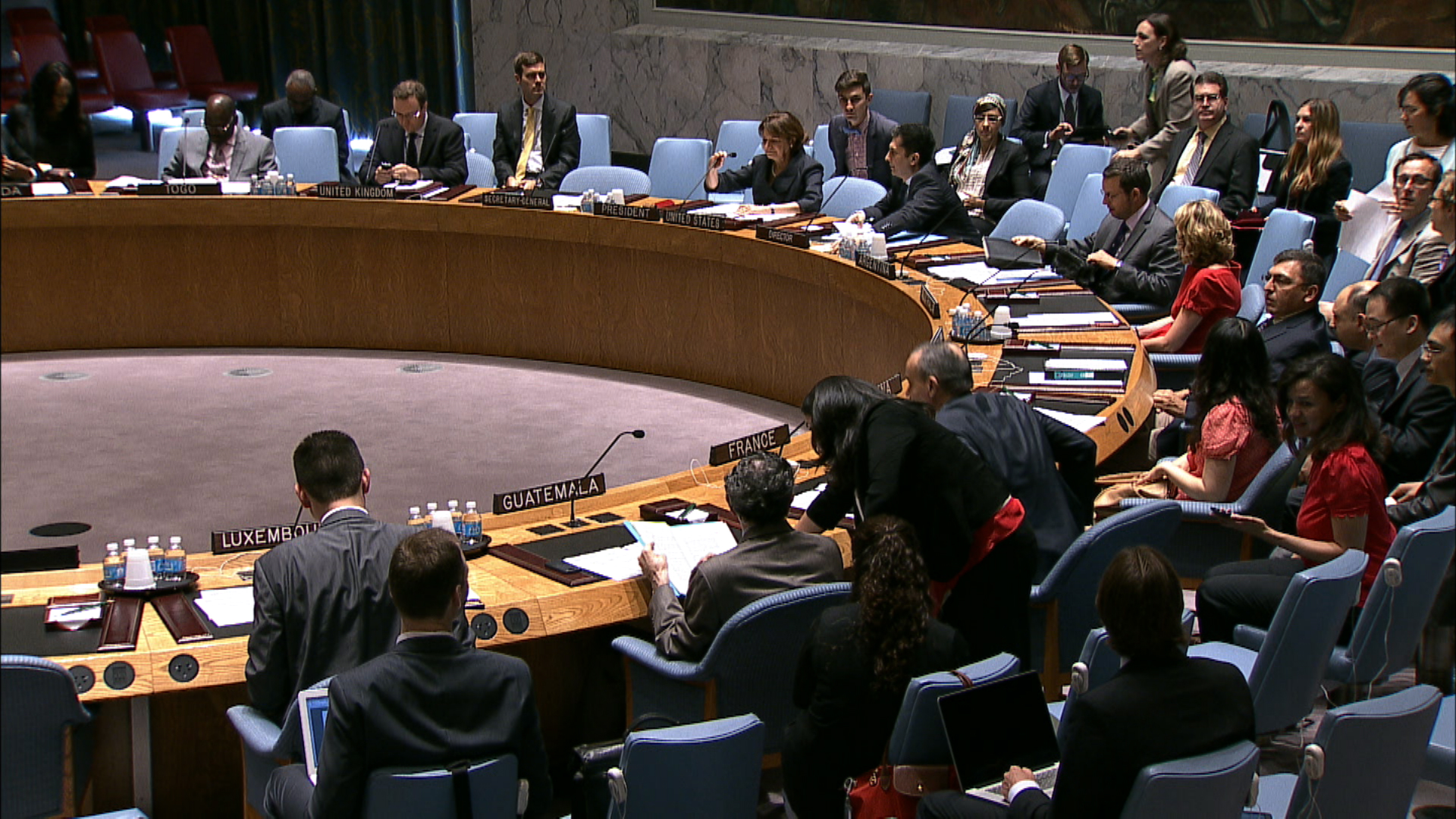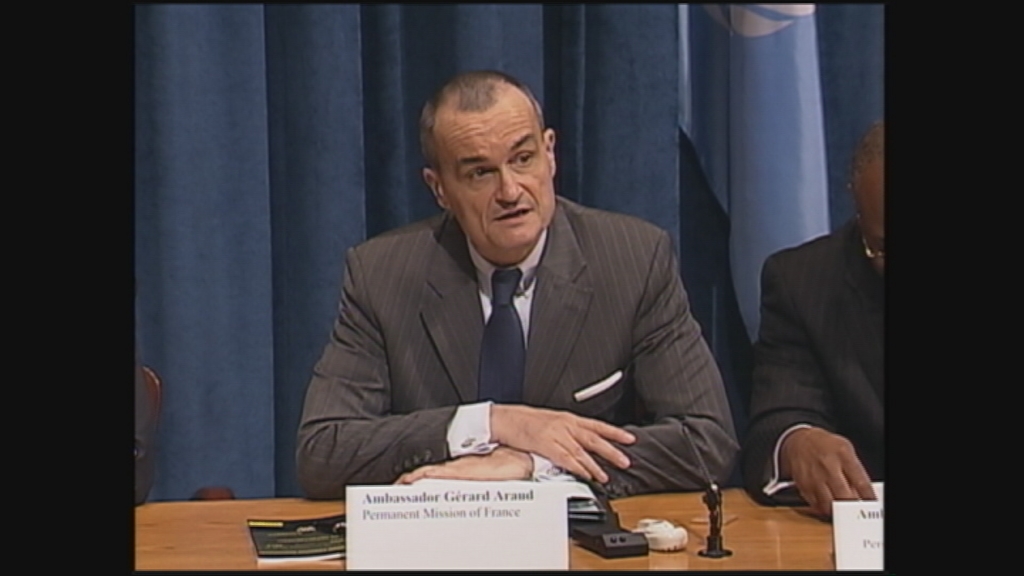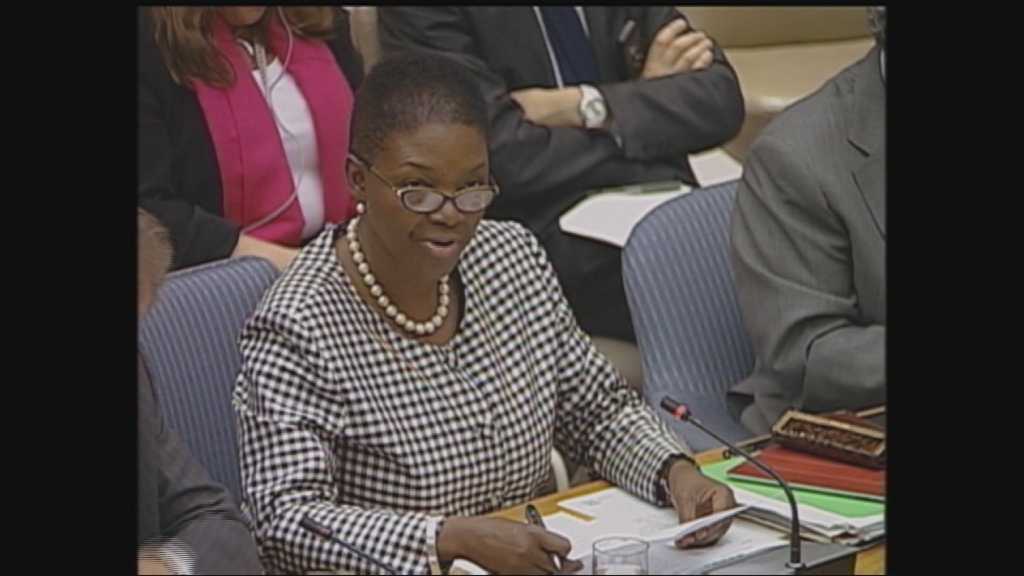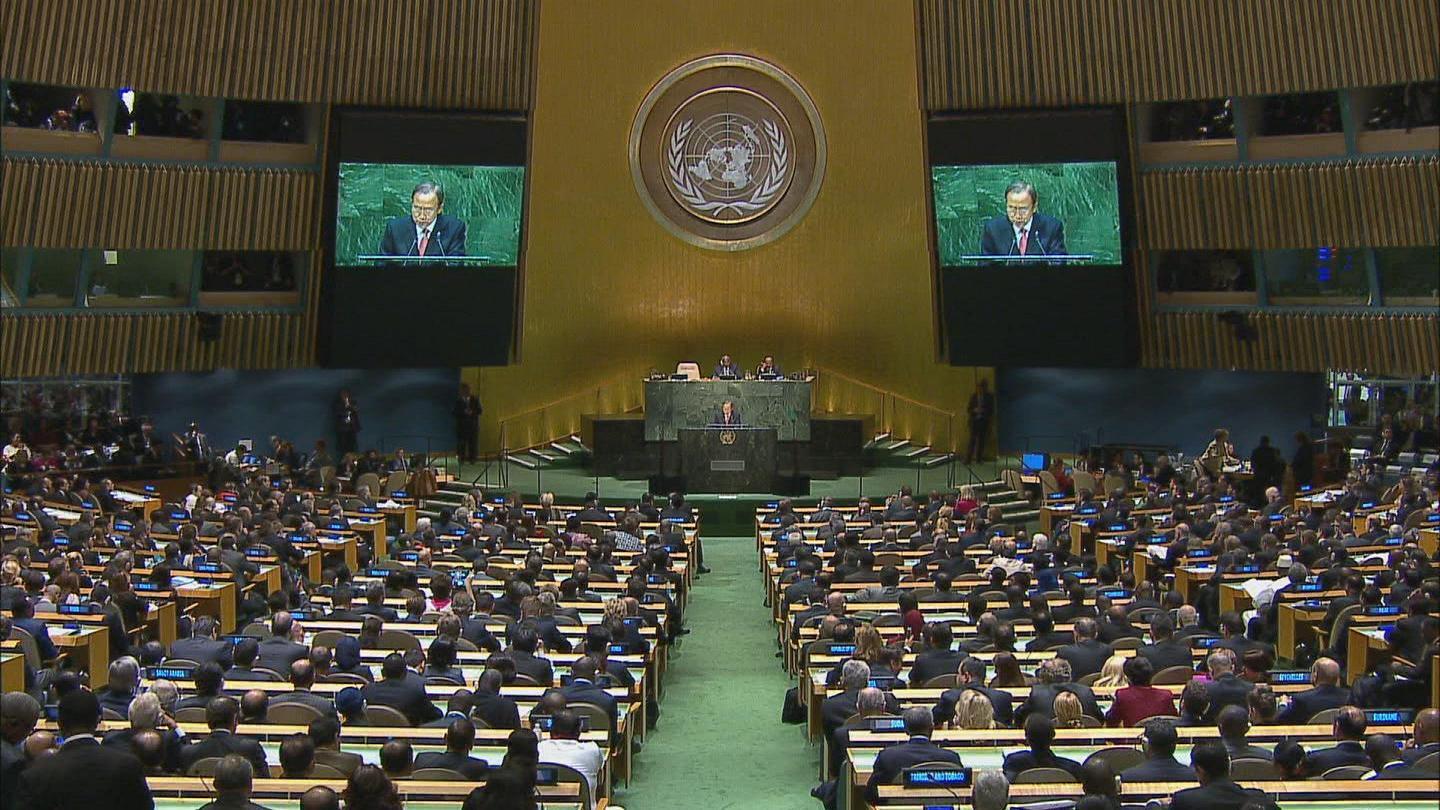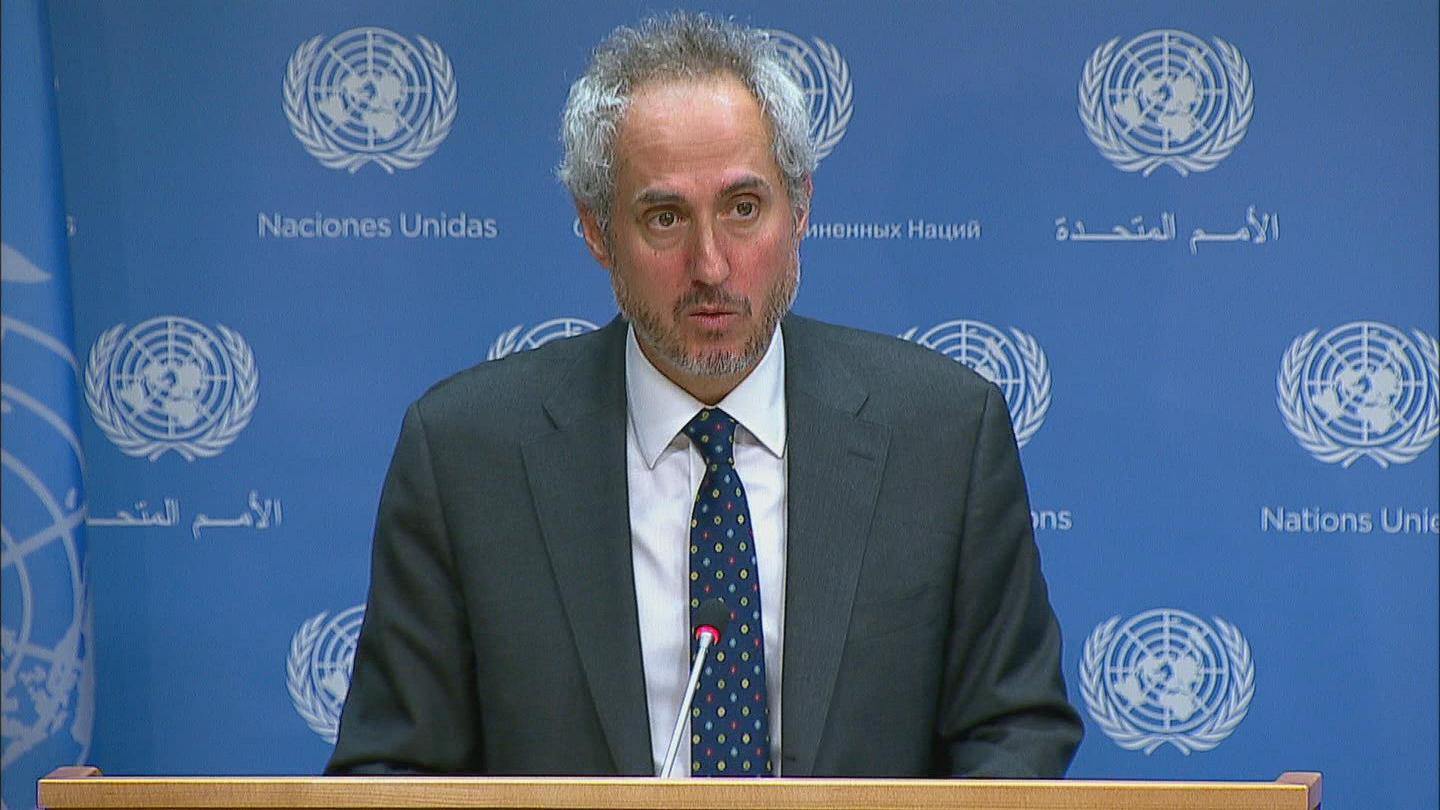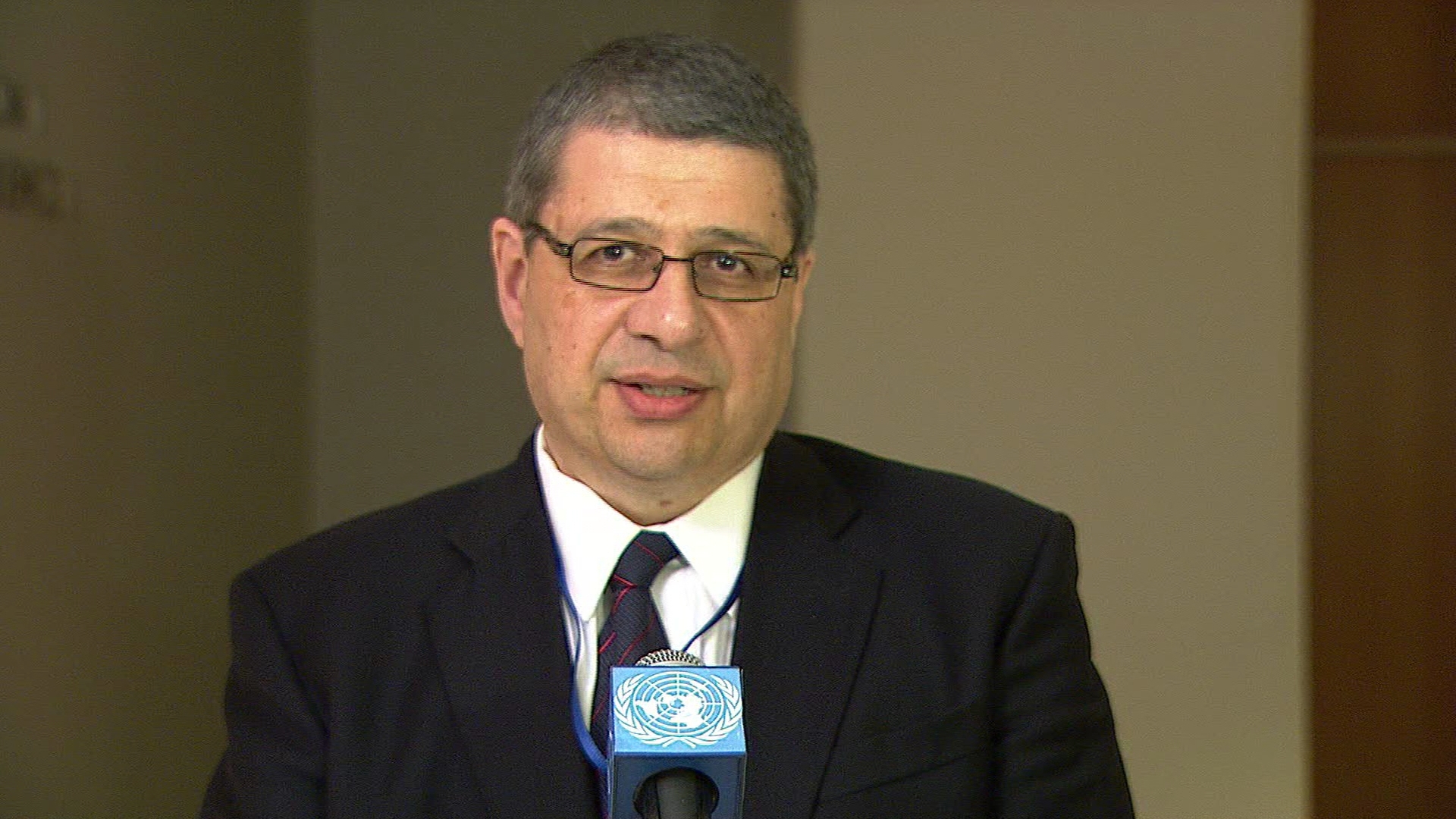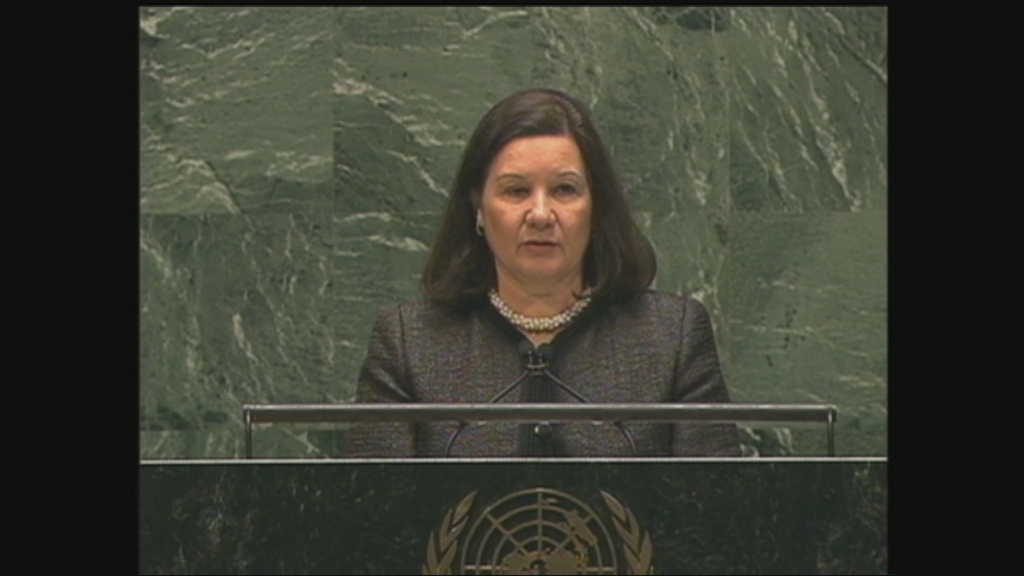GENEVA / US DEATH PENALTY
Download
There is no media available to download.
Share
STORY: GENEVA / US DEATH PENALTY
TRT: 2:07
SOURCE: UNTV CH
RESTRICTIONS: NONE
LANGUAGE: ENGLISH / NATTS
DATELINE: 28 APRIL 2017 GENEVA, SWITZERLAND
1. Exterior, Palais des Nations
2. Med shot, press briefing room
3. SOUNDBITE (English) Liz Throssell, Spokesperson for the Office of the UN High Commissioner for Human Rights (OHCHR):
“We are deeply troubled that, after a 12 year de facto moratorium on the use of the death penalty, the US State of Arkansas has executed four men in the space of eight days. The latest prisoner to be executed by lethal injection was Kenneth Williams, who was pronounced dead at just after 11pm Thursday local time. Ledell Lee was executed on 20 April, and Marcel Williams and Jack Jones on 24 April.”
4. Close up, journalist
5. SOUNDBITE (English Liz Throssell, Spokesperson for the Office of the UN High Commissioner for Human Rights (OHCHR):
“The reason stated by the Governor of Arkansas for proceeding with the executions was that the State’s supply of one of the drugs used in lethal injections – midazolam - was due to expire on 30 April and it was unclear whether further supplies could be obtained.”
6. Close up, laptop
7. SOUNDBITE (English) Liz Throssell, Spokesperson for the Office of the UN High Commissioner for Human Rights (OHCHR):
“Midazolam is one of these drugs that is used when prisoners face lethal injections in Arkansas. States do have different protocols, but in this case the use of Midazolam which is a sedative and the aim is to prevent somebody experiencing pain as they are being executed. I think the concern that has been noted with previous botched executions is that that has not been the case. For example, there was a case in April 2014 when a man was injected with Midazolam and he was declared unconscious, but ten minutes later he begun mumbling and writhing. He died of a heart attack 40 minutes later. So these are been cases that have happened, so that is the concern with the use of this drug Midazolam.”
8. Close up, journalist
9. SOUNDBITE (English) Liz Throssell, Spokesperson for the Office of the UN High Commissioner for Human Rights (OHCHR):
“Well, I can’t give you information directly from us, but what I have seen in media reports from witnesses who were witnessing the execution in the case of this last person Kenneth Williams, his body did convulse as he was being injected.”
10. Various shots, journalists
The UN Human Rights Office (OHCHR) expressed deep concern about the fourth prison inmate executed in eight days by lethal injection in Arkansas, United States.
Speaking today (28 Apr) to reporters in Geneva, UN Human Rights Office (OHCHR) spokesperson Liz Throssel said, “We are deeply troubled that, after a 12 year de facto moratorium on the use of the death penalty, the US State of Arkansas has executed four men in the space of eight days.” She added “the latest prisoner to be executed by lethal injection was Kenneth Williams, who was pronounced dead at just after 11pm Thursday local time. Ledell Lee was executed on 20 April, and Marcel Williams and Jack Jones on 24 April.”
Throssell reported that “the reason stated by the Governor of Arkansas for proceeding with the executions was that the State’s supply of one of the drugs used in lethal injections – midazolam - was due to expire on 30 April and it was unclear whether further supplies could be obtained.”
According to UN Human Rights Office, “such an argument led to the scheduling of the executions of these men being accelerated in an arbitrary manner, with the expiration date of a drug being a determining factor”. Furthermore the UN Human Rights Office said that “rushing executions can deny prisoners the opportunity to fully exercise their rights to appeal against their conviction and/or sentence, and can also lead to States’ shortening their clemency processes, thereby affecting prisoners’ rights.”
Throssell said, “Midazolam is one of these drugs that is used when prisoners face lethal injections in Arkansas. States do have different protocols, but in this case the use of Midazolam which is a sedative and the aim is to prevent somebody experiencing pain as they are being executed.”
OHCHR’s spokesperson explained “the concern that has been noted with previous botched executions is that that has not been the case. For example, there was a case in April 2014 when a man was injected with Midazolam and he was declared unconscious, but then minutes later he begun mumbling and writhing. He died of a heart attack 40 minutes later. So these are been cases that have happened, so that is the concern with the use of this drug Midazolam.”
The use of the sedative drug Midazolam in the lethal injection protocol has been criticised for failing to prevent people from suffering pain. In the last three years, botched executions have been reported related to the use of this drug in several cases, including in Alabama, Oklahoma and Ohio.
OHCHR’s spokesperson also said “what I have seen in media reports from witnesses who were witnessing the execution in the case of this last person Kenneth Williams, his body did convulse as he was being injected.”
The executions in Arkansas have taken place amid the steady decline of the death penalty in the US, from 52 in 2009 to 20 in 2016. There have now been 10 executions so far this year.
According to OHCHR, the highest number of people in the US on the death row is in California with 741 people.
The UN opposes the death penalty in all circumstances and calls on all Governments that retain it to establish an official moratorium on all executions with the aim of abolishing the death penalty.
